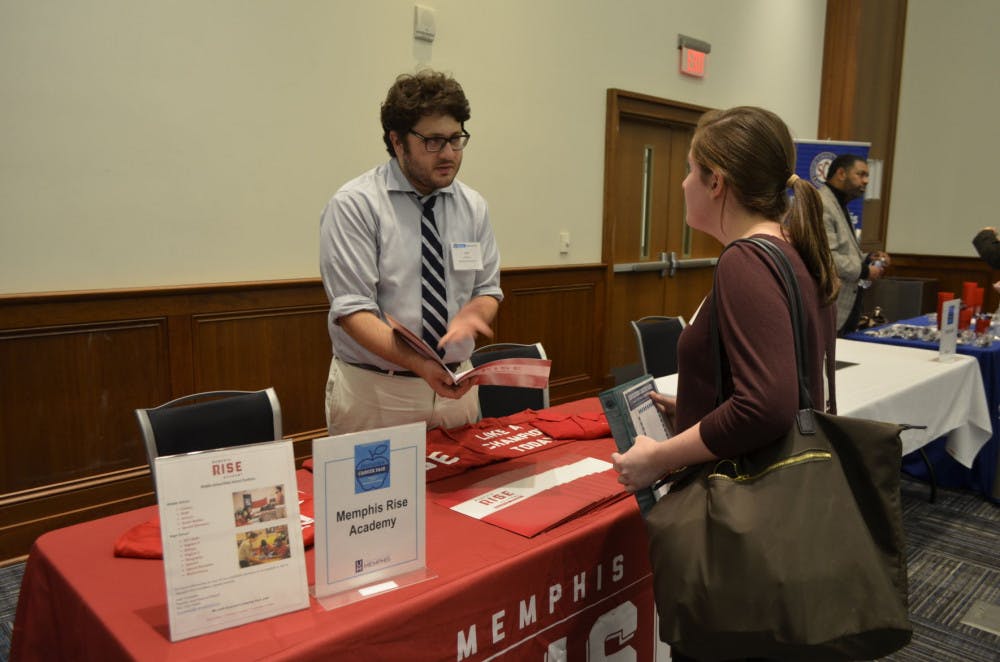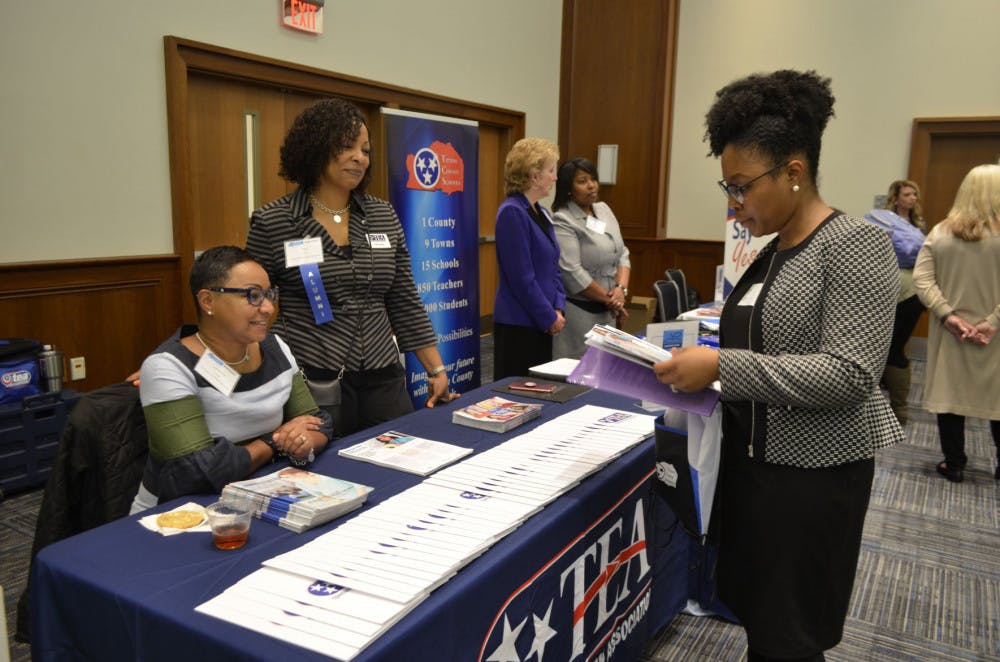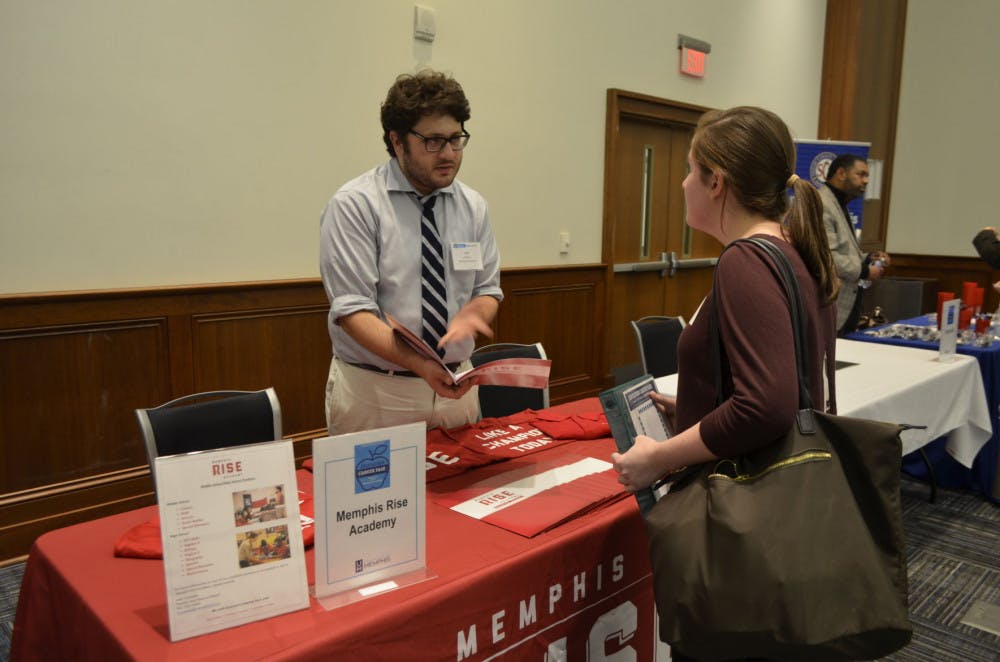The number of college students majoring in the field of education has been declining. This could be influenced by students’ previous school experiences and family pressure.Â
Only 4.2 percent of students entering college intended to major in education, compared to 11 percent in 2000, according to a 2016 study conducted by the University of California at Los Angeles’ Institutional Research program. The University of Memphis’ College of Education enrolls 1,367 students for the current semester out of 22,425 total U of M students.
“It is true about lower enrollments,†Mary Ransdell, professor of elementary education, said. “There are a number of contributing factors, one of them being a perception by the general public that teaching doesn’t pay well.â€
Ransdell said parents of college students could also dissuade them from going into teaching because it doesn’t carry the same prestige as being a doctor or a lawyer.

Jack Vuylesteke talks to Elizabeth Brame (26, counseling graduate student) about the Memphis Rise Academy at the “Education Fair” Nov. 7.
While teaching is “a hard job,†there are many reasons to become an educator, Ransdell said.
“One of the many positives is watching children’s faces glow when they understand something,†Ransdell said. “When they get it, a light goes on. They make connections. They become interested in their own learning.â€
Ransdell urged students to think about influencing a large number of young people by becoming an educator.
“Consider the possibility of encouraging their learning,†Ransdell said. “Educators are role models.â€
Ransdell said the College of Education needs more men, specifically men of color, in its early elementary programs.
Although the number of bachelor’s degrees awarded in the United States over the last decade has increased by over 300,000, the number of these degrees awarded in the field of education has declined, according to the National Center for Educational Statistics.
The NCES reported for academic year 2014-15, postsecondary institutions awarded 91,623 education degrees, which is compared to 102,582 awarded for academic year 2007-08. Â

Lerkenda Little and Terri Jones (right) talk to Kierra Savage (24, couseling graduate) about the Tennessee Education Association. The fair provided food and refreshments for students and employers.
Ethan Hodge, a 20-year-old teaching all learners major at the U of M, said many students may not want to teach as a career because of their own negative school experiences. Â
“I think that some of the students that struggled in school in the past years – it’s just kind of discouraged them from school, to not be anywhere near it,†Hodge said. “I was the same way until I actually started working with special needs students. It made it feel like it was more of a reward for me, being able to grasp something, and being able to help students do that is just something I’ve always enjoyed doing since my freshman year of high school.â€
Hodge said he plans to become a high school special education teacher.
“If I could find an organization to get involved in like the Special Olympics or something like that, helping students with disabilities — I really want to be involved with that,†Hodge said.Â
Hodge said while a student does not have to major in education to work with students with special needs, “it helps to know your material if you want to be an actual teacher.â€
The career services department hosted an Education Career Fair Tuesday in the University Center Ballroom. The fair connected students and alumni with local recruiters and employers in the field of education.Â
Christie Wilson, district literacy coordinator for the West Memphis, Arkansas school district, assisted with the district’s booth at the fair and offered encouragement to students who are considering pursuing a career in education. She said people who become teachers change the trajectory of students’ lives.
“You’re making a difference,†Wilson said. “It’s more than just a job.â€Â Â




